Darren Hayes on The Masked Singer, coming out and his 10-year career break
Masked Singer star Darren Hayes speaks to news.com.au about his emotional reveal in last night’s grand finale.
“I’m just a singer,” was Darren Hayes’ typically understated response as The Masked Singer judging panel fangirled over his reveal during Tuesday night’s finale.
Hayes’ Grim Reaper may have been pipped to the win by Dami Im’s Snow Fox, but he was arguably the standout star of the season – not least because anyone with even a passing knowledge of pop from the past 30 years would’ve been able to pick his distinctive voice back in week one.
Hayes also provided perhaps the season’s most emotional moment, tearfully bonding with judge Abbie Chatfield over their respective coming out stories after his reveal last night.
Chatfield explained how much his performance at the 2022 Mardi Gras had helped her in her own journey coming out as bisexual.
Hayes response was heartbreaking: That had been his second Mardi Gras performance, he told her. During his first, in the early noughties and before he came out publicly, “I hated who I was.”
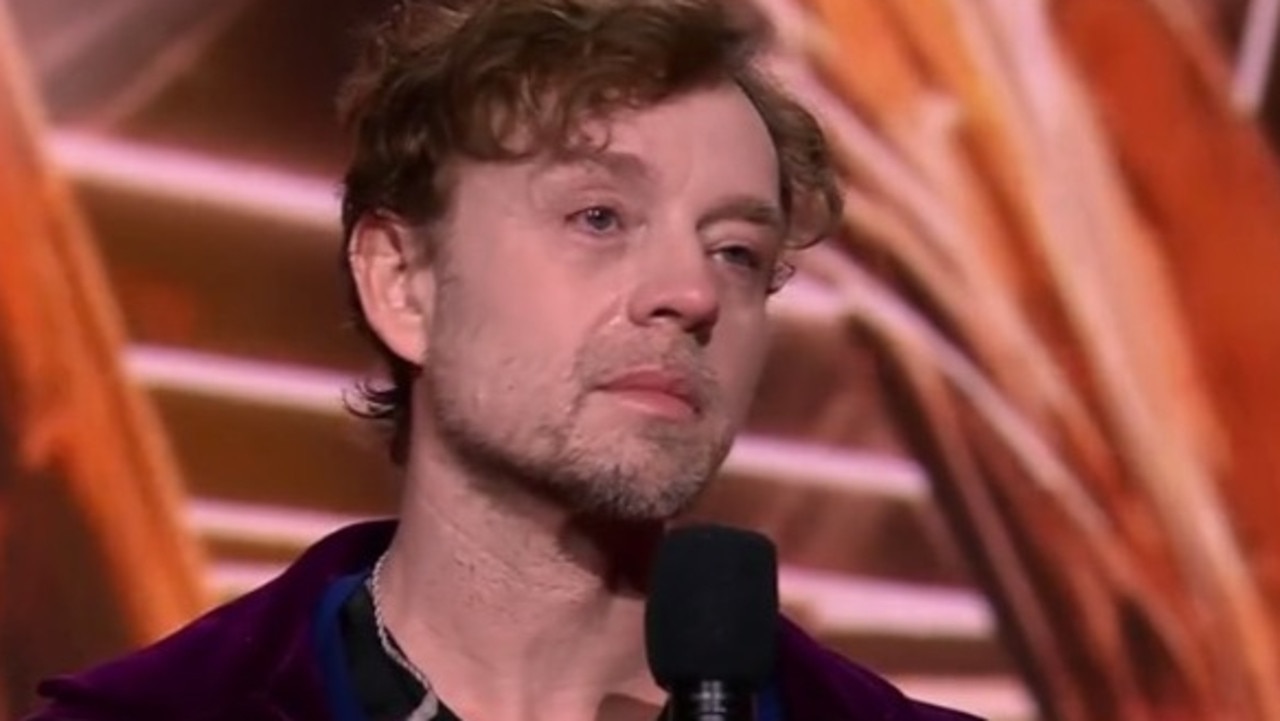
Speaking to news.com.au the morning after the finale aired, Hayes was in a reflective mood, opening up about doing The Masked Singer during a “tender” time following the end of his marriage, and how the show has helped restore his confidence after decade-long break from the music industry.
I think I speak for many a Masked Singer viewer when I say: We knew it was you from the very first note.
It’s funny – I went into the show knowing that, and I just made a decision just to sing. I expressed that concern to the producers: love it or hate it, I have such a recognisable voice.
And they said, ‘Just go with it’. I almost died because in the first show, Abbie just guessed me immediately. I thought, does this mean I’m out? But I just figured, if I’m going to do this show, I’m just going to sing and see what happens.
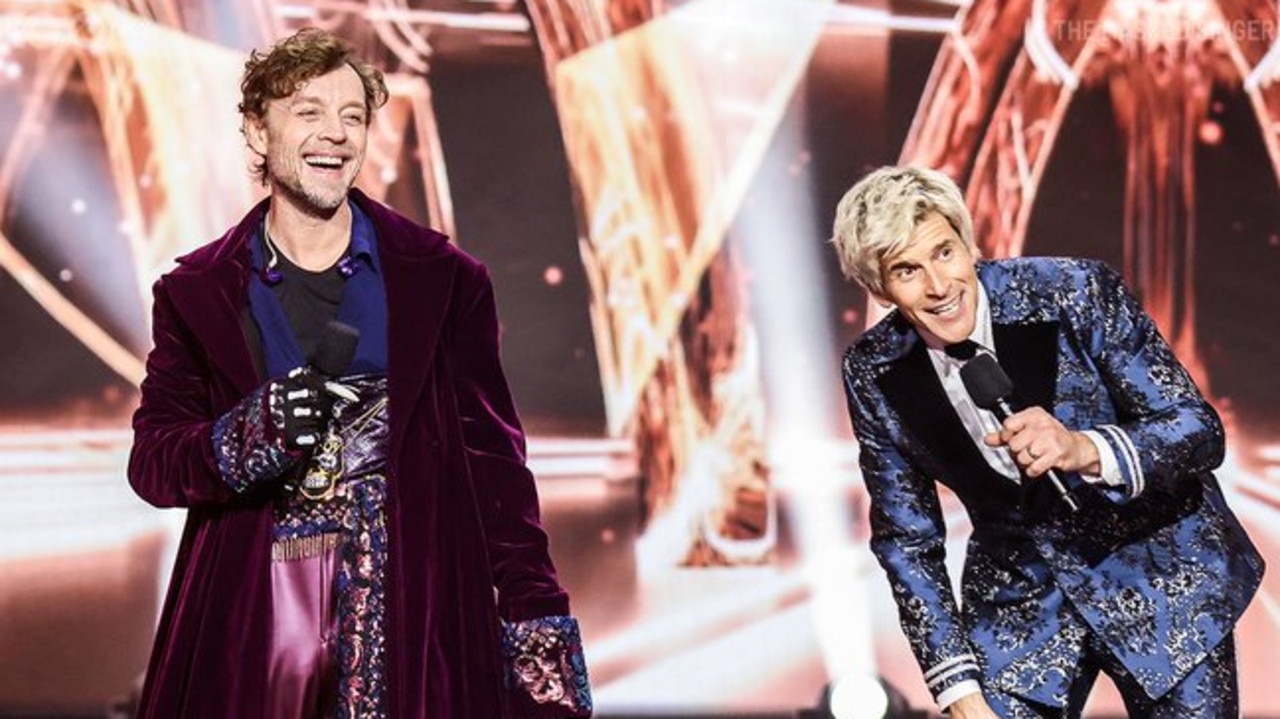
It seems like there’s one contestant per season – a Kate Ceberano or an Anastacia – where the voice is so distinctive everyone can pick it straight way, then we all just sit back and enjoy the show.
Honestly, for lots of reasons, I didn’t think I would stay in the show. I was in a very tender place in my life, I didn’t really want to be away from home, and was thinking, ‘I’m sure I’ll just do one episode and then I’ll be guessed and flown home’.
So to have lasted that long was a bit of a shock, and then it became really emotional.
And there was a lot of facing my fears because without any of my ‘stuff’, I’m just inside what I called the Muppet costume. I don’t have any charisma. I don’t have any of my moves. I don’t have just any of the stuff that I’m used to falling back on. It was terrifying.
Last night’s reveal was surprisingly emotional. You had tears streaming down your face as you spoke to Abbie – it must’ve been an overwhelming moment.
I’ve been trying to wrap my head around this for a while. I think I just feel really humbled. The music industry can be really cruel, and fame is so strange and fickle, and I probably need to give myself a little kick in the pants sometimes because I really count myself out a lot.
I don’t think of myself very often as somebody who is successful or talented.
Seeing Abbie’s reaction to me and hearing her story, I was really humbled because I was made to witness what 20 years of a career, what that impact can have on a person.
And around that time, a lot of people that I loved had passed away. Sinead O’Connor passed away; Madonna almost died. A lot of people that I love gone, and I hadn’t been using my talent.
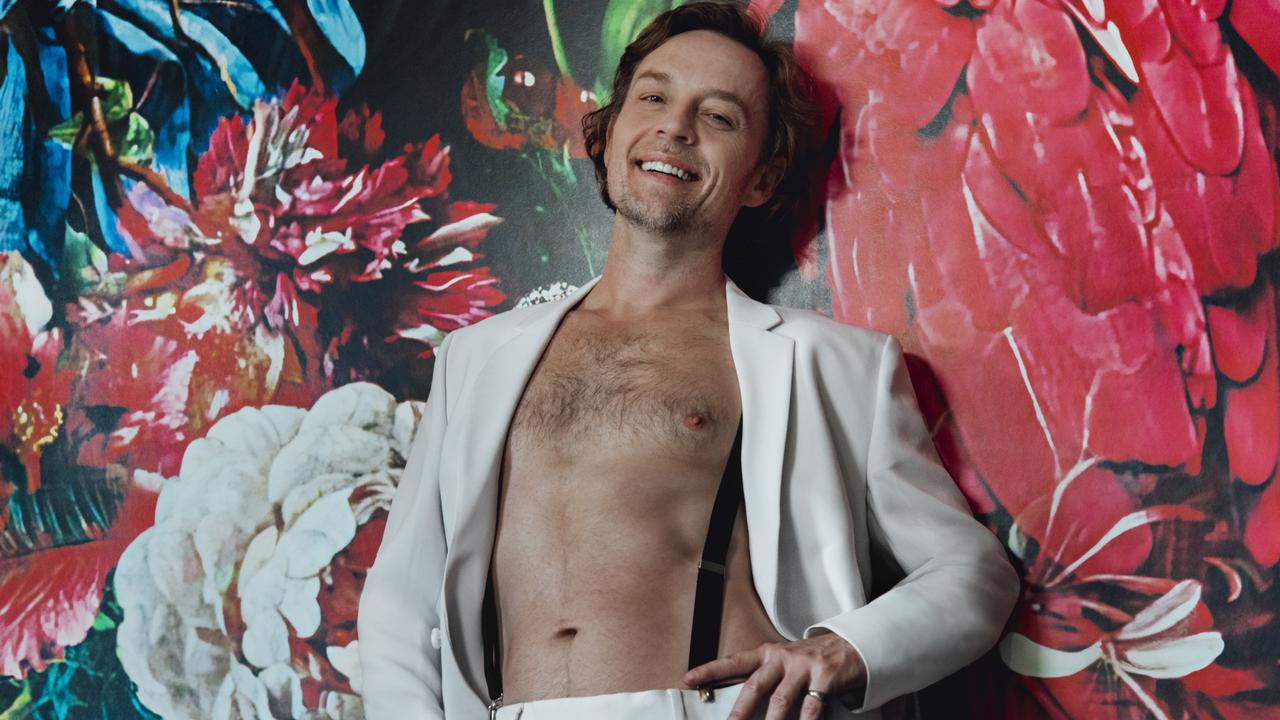
But it was a confronting experience. It was an impossible position to sing in: That costume was so big that my arms had to be up above my head, which is impossible for your lungs. And I had essentially a cinched waist, and there were all these things physically that were impeding me to breathe, and I just had to go inside myself every time, be zen and just remember the basics of how it is to breathe and sing and hit a high note.
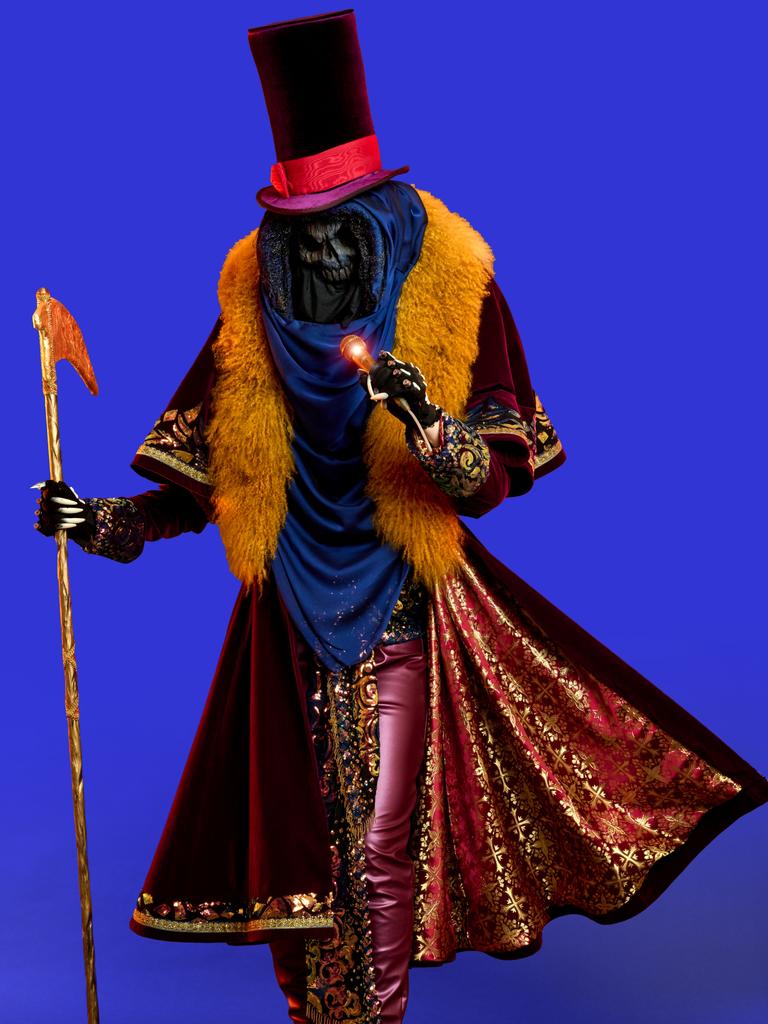
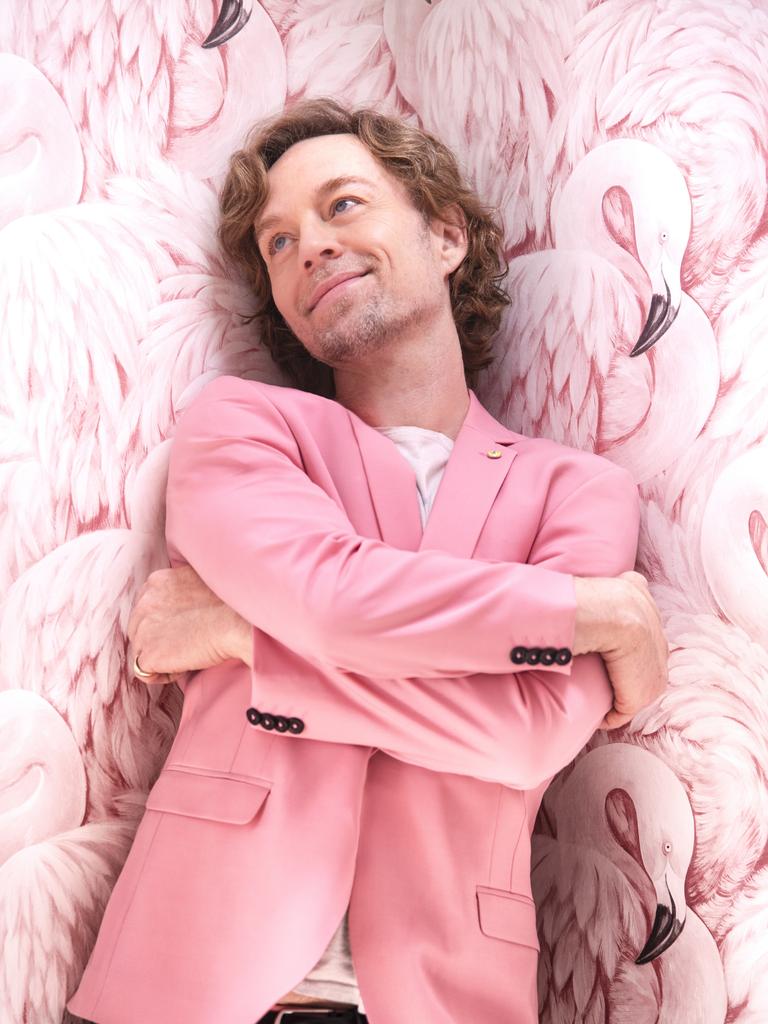
It was heartbreaking to hear you tell the judges you hated yourself during your first Mardi Gras. It must’ve been cathartic to go back in 2022 as an out gay man.
Yeah, it was beautiful. I think my first time was in around 2005, and it was just that really murky, awkward stage for all gay performers. There wasn’t a Cub Sport, a Sam Smith, a Kim Petras. This era didn’t exist.
I mean, I never had the fake girlfriend. I wasn’t that person. I never lied about who I was, but I never embraced it. But my second [Mardi Gras]? I mean, I looked like a flamingo, and I loved it! I was proud of the skin that I was in. I was turning 50. I said to the audience, ‘Thank you for loving me, even when I didn’t love myself’, as soon as I said those words, I then almost started to cry. And I was like, ‘God, don’t do that. I have to sing Affirmation.’
You also spoke about the record company pressure – it must have been hard to figure out how to love yourself when you have your employer telling you to keep this secret.
Yes. And not only saying that to you, but making all sort of sabotaging decisions about you. That’s what was happening to me. They were actively cutting me from television performances in the US: They launched my solo career with a meet and greet because the president of the label was so afraid that if I performed on say, Jay Leno, that I might look too obviously gay.
And it is just heartbreaking. You just feel like people are repulsed by you. They’re so embarrassed of you, and by you. And I had been in boardrooms where I’d heard these men, and they were men, top radio executives, openly mocking and making gay jokes about Ricky Martin. And I was just sitting there listening to them, and they knew that I was gay, and they were making all these gay jokes about their highest earning male pop star at the time. And it’s a horrible, toxic feeling. These are the people that they’re going to make a decision about what’s going to happen to your career. And boy, did they.
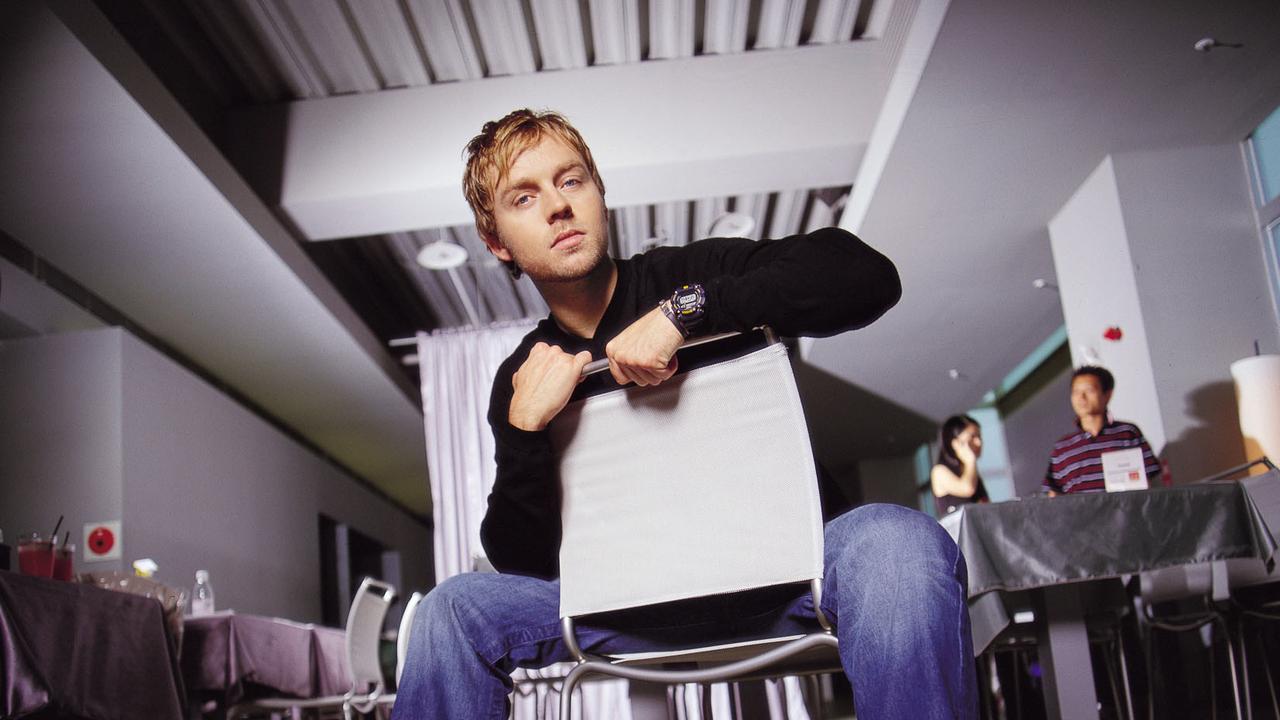
You mentioned not using your singing talents – there was an 11-year break from music beforeyou returned with the Homosexual album last year. Did you ever think you might not come back to music?
Yeah, but I was just really deeply sad. I was deeply sad in my personal life … I’ll talk more about that in a book I’m writing at the moment for Penguin [Hayes’ memoir will be released in late 2024]. But I was just so deeply sad. I think part of that was rejection from the major recording industry, which finally took its toll on me. That cut really deeply.
But there was also a lot going on in my private life, and I just didn’t feel like singing. Homosexual, if you listen to that record, it’s a rebirth because I was starting to love myself again and starting to choose myself, and not just embracing my sexuality, but just embracing myself. It’s funny, Kate Bush has got this wonderful song called How to Be Invisible. Well, that’s sort of how I was starting to feel.
I think in my private life, I was starting to feel invisible and I decided one day: No, I still have so much to feel and to love, and I have so much passion and so much more in my life. And making that album was the beginning of a ton of changes that were going to happen in my life. So … I’m back.






